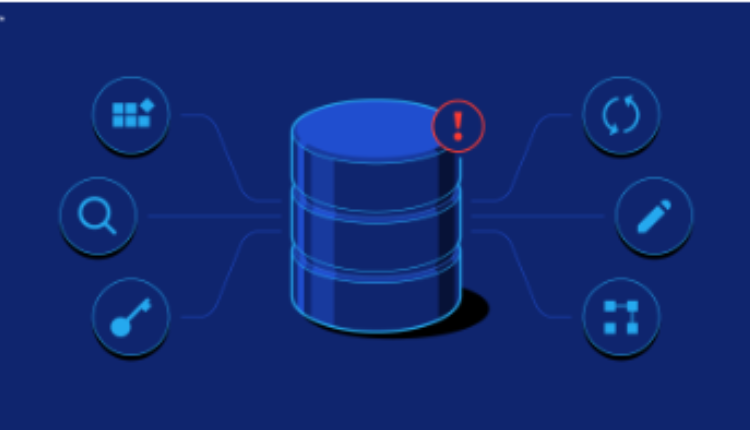
Database
Microsoft SQL Server is a robust, versatile, and widely-used relational database management system (RDBMS) that has transformed the way organizations handle data. With its powerful features and integration capabilities, SQL Server plays a crucial role in a variety of applications, from enterprise-level systems to smaller-scale projects. This article delves into the fundamental aspects of SQL Server, emphasizing its architecture, features, and practical applications.
The Architecture of SQL Server
Understanding the architecture of SQL Server is essential for grasping how it operates. SQL Server is built on a client-server architecture, which separates the database services from the client application. This separation allows for better performance and scalability.
Components of SQL Server
SQL Server consists of several key components that work together to provide database services:
1. Database Engine: The core service responsible for data storage, processing, and security. It handles transactions, queries, and storage management.
2. SQL Server Agent: A component that enables scheduling and automation of tasks such as backups and report generation. It enhances database management efficiency.
3. SQL Server Management Studio (SSMS): A graphical user interface that allows administrators and developers to manage and administer SQL Server instances. SSMS provides tools for writing and executing queries, monitoring performance, and configuring server settings.
4. Reporting Services: This feature enables the creation, management, and delivery of reports. It allows organizations to convert data into actionable insights, facilitating decision-making processes.
5. Integration Services: A tool for data integration and workflow applications. It enables the extraction, transformation, and loading (ETL) of data from various sources, making it easier to consolidate and analyze information.
6. Analysis Services: This component allows for data mining and online analytical processing (OLAP). It enables the creation of complex analytical models to support business intelligence applications.
Key Features of SQL Server
SQL Server offers a wide array of features that enhance its functionality and usability. Here are some of the standout features:
Advanced Security
Security is a top priority for any database management system, and SQL Server excels in this area. It incorporates several security features, including:
– Transparent Data Encryption (TDE): Protects data at rest by encrypting the database files, ensuring that sensitive information remains secure even if the hardware is compromised.
– Row-Level Security: Allows administrators to restrict data access at the row level, ensuring that users can only see data pertinent to their roles.
– Dynamic Data Masking: Hides sensitive data in query results, providing an additional layer of security without requiring changes to the application code.
Scalability and Performance
SQL Server is designed to handle large volumes of data and high transaction rates. It includes features like:
– In-Memory OLTP: Optimizes transaction processing by storing data in memory, significantly enhancing performance for transactional workloads.
– Partitioning: Enables the division of large tables into smaller, more manageable pieces, improving query performance and data management.
– Indexing: SQL Server supports various indexing strategies, including clustered and non-clustered indexes, to accelerate data retrieval.
Integration with Other Technologies
SQL Server’s ability to integrate seamlessly with other Microsoft products and third-party applications makes it a preferred choice for many organizations. The integration with Microsoft Azure, for instance, allows users to extend their on-premises SQL Server databases to the cloud, enhancing flexibility and disaster recovery capabilities.
High Availability and Disaster Recovery
Maintaining data availability and preventing loss is crucial for any organization. SQL Server offers several features to support high availability and disaster recovery:
– Always On Availability Groups: This feature provides high availability and disaster recovery solutions for enterprise applications by allowing multiple databases to failover together.
– Database Mirroring: Ensures that a standby database remains in sync with the primary database, providing an immediate backup solution in case of a failure.
– Backup and Restore Options: SQL Server supports various backup types, including full, differential, and transaction log backups, ensuring that data can be restored efficiently in case of a failure.
Practical Applications of SQL Server
SQL Server is used across various industries for numerous applications. Its versatility makes it a suitable choice for:
Business Intelligence
SQL Server’s integration with analysis and reporting tools allows organizations to harness data for business intelligence. By using SQL Server Reporting Services (SSRS) and SQL Server Analysis Services (SSAS), companies can create detailed reports and analytical models to drive strategic decisions.
E-commerce and Web Applications
In the realm of e-commerce, SQL Server plays a vital role in managing product catalogs, processing transactions, and maintaining customer data. Its performance and scalability make it an ideal choice for high-traffic web applications.
Healthcare and Financial Services
SQL Server is widely used in healthcare and financial sectors for managing sensitive data, ensuring compliance with regulations, and providing secure access to information. Its advanced security features and reliability make it a preferred database management system in these industries.
Drive Business Success
So, what is a sql server? SQL Server stands as a powerful and flexible relational database management system that meets the evolving needs of modern organizations. Its comprehensive features, robust architecture, and seamless integration capabilities make it an essential component of data management strategies across various industries. Whether you are a developer, database administrator, or business analyst, understanding SQL Server will empower you to make informed decisions that optimize data usage and drive business success. By leveraging its capabilities, organizations can unlock the full potential of their data and stay competitive in today’s data-driven world.







